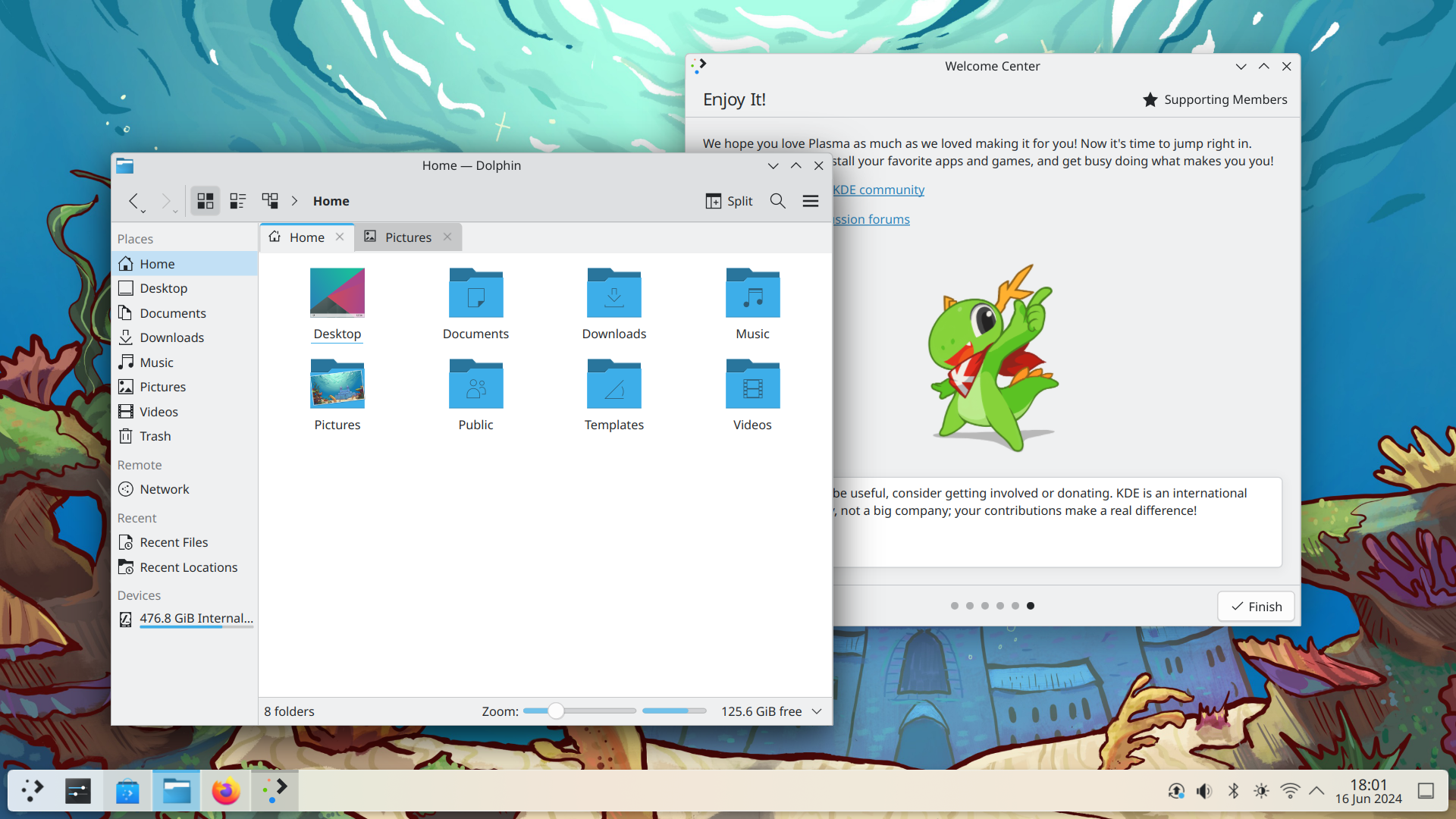- cross-posted to:
- linux@lemmy.world
- cross-posted to:
- linux@lemmy.world
cross-posted from: https://lemmy.ml/post/17012596
While Plasma 6.0 was all about getting the migration to the underlying Qt 6 frameworks correct (and what a massive job that was), 6.1 is where developers start implementing the features that will take your desktop to a new level.
In this release, you will find features that go far beyond subtle changes to themes and tweaks to animations (although there is plenty of those too), as you delve into interacting with desktops on remote machines, become more productive with usability and accessibility enhancements galore, and discover customizations that will even affect the hardware of your computer.
These features and more are being built directly into Plasma’s Wayland version natively, avoiding the need for third party software and hacky extensions required by similar solutions implemented in X.
Things will only get more interesting from here. But meanwhile enjoy what will land on your desktop with your next update.
Some of the new features:
- Improved remote desktop support with a new built-in server
- Overhauled desktop edit mode
- Restoration of open applications from the previous session on Wayland
- Synchronization of keyboard LED colors with the desktop accent color
- Making mouse cursor bigger and easier to find by shaking it
- Edge barriers (a sticky area for mouse cursor near the edge between screens)
- Explicit support eliminates flickering and glitches for NVidia graphics card users on Wayland
- Triple Buffering support for smoother animations and screen rendering



It was just merged to NixOS. Should be on unstable in a few days…
Thanks, I’m new to Linux so don’t understand the process. How long until a stable release typically?
Depends on the specific distro and their upgrades policies.
Usually with normal distributions you get an update to a new major version (e.g. from Plasma 6.0 to Plasma 6.1, or some versions can be skipped) when a new version of the distribution gets released, and in the mean time you only get bug fix releases (e.g. 6.0.x to 6.0.y). Sometimes some distributions also make special backports available to bring new major versions to same distro version.
With rolling release distributions (e.g. openSUSE Tumbleweed) you get new major releases in a few days after they are released.
So you need to check with Nobara how they handle this.
Got it. Thanks for taking the time to explain!